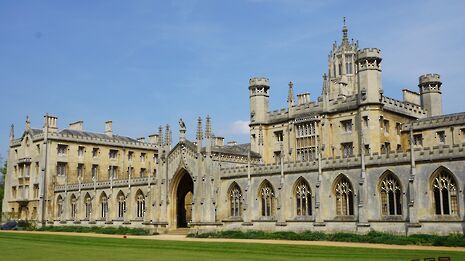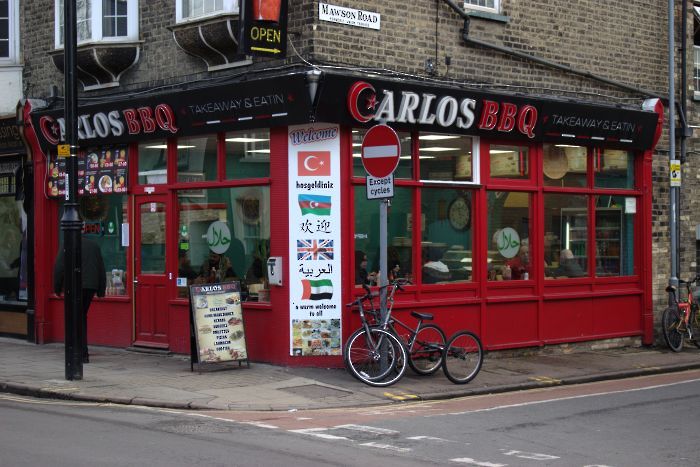Disabled students face fight for accessible accommodation
Some students reported difficulties finding affordable, accessible accommodation after colleges provided few options

Students with disabilities face more expensive room charges and restricted options for accommodation, a Varsity investigation has found.
Accessible rooms, which tend to be larger, are commonly included in colleges’ highest rent bands.
A student at Emmanuel College who needed an accessible room was allocated the most expensive room in the college, and was only able to afford it after applying for a rent reduction, an option which is not normally advertised to disabled students. Additionally, their request to stay in College over the vacation was turned down where the applications of other applicants, who were not disabled, were accepted, as the College said that the student’s disability made them a “health and safety concern”.
The student had sought to stay as their home was not accessible and they required regular medical treatment in Cambridge. They were given ten days to leave and had to move to a room at Jesus College. Upon their return, they were allocated an inaccessible room with no kitchen facilities for a week.
Emmanuel College did not respond to a request for comment.
One student at Trinity Hall told Varsity they were paying more than £50 a week extra compared to a standard, non-accessible room. A spokeswoman for the College said: “Trinity Hall endeavours to make every possible effort to accommodate students with disabilities. The College has a number of ground floor rooms which are en suite and furnished to meet the needs to students [sic] with physical disability. Further, Trinity Hall works closely with the [Disability Resource Centre] and other University and College support structures to work with students with disability, to enable them to feel well supported while at Cambridge.”
Some students reported that colleges were receptive to their requirements. A student at St John’s, who had applied for an accessible, ground-floor double set, said that the College had been “really good” and that they had “got everything [they] asked for”. However, another student at the College, whose only special requirement was for ensuite facilities, was allocated, without a choice, a room which was almost £400 more expensive than their room the previous year. The College later offered the student a more affordable option after it was pointed out that it could be acting in breach of the law.
A spokeswoman for St John’s said: “If we are unable to offer a room with a standard rent cost due to the specific requirements/adaptations then we ensure that we comply with guidance provided by the Disability Resource Centre and where applicable charge the cost of a standard room”. It is unclear in which circumstances the application of the lower charge would apply. The student who required an en suite room, typically more expensive in the ballot system, was not offered it at a reduced rate.
A lack of choice in accommodation across the University was among the most commonly reported issues, with accessible rooms often in isolated locations away from peers. A student at Girton who only needed an en-suite room with ground floor access was instead allocated an adjustable room, with moveable sinks and a ‘wet’ bathroom, on a corridor away from her peers with only one other fresher, when other standard ground-floor en-suite options were available.
The college replied to their request to move to a standard en suite room for their second year by noting that they would be very low on the ballot due to the technical grade ‘D’ category of their first year room, and that it did not make adjustments for disabled students migrating into its ballot system. Girton did not reply to a request for comment.
Some students reported that it was difficult to persuade colleges that they had specific needs. After sending details of their requirements and medical evidence to a tutor, a student at Newnham received a reply which they described as “very dismissive” and said that they were “essentially accused of playing the ballot system to get a better room than other people”. The College later conceded that the requirement was legitimate, and allocated the student an appropriate room. The incident occurred in 2013-4 under a senior tutor who has since retired.
A spokeswoman for Newnham said: “All of our undergraduates pay the same rent, no matter which room they are allocated. Students – undergraduate or graduate – are never charged any additional fees for making adjustments to their room or specific facilities to accommodate any specific requirements they may have.”
Colleges which charge disabled students more for accommodation than non-disabled students are at risk of contravening the Equality Act 2010, which obliges them to make “reasonable adjustments” to avoid price discrimination against disabled people.
Although colleges are legally charitable bodies and the law gives some exceptions to charities, their lettings are regarded as commercial relationships because of the use of formal tenancies. They are thus likely to fall under the Act as “controllers of let premises”.
According to the Government Equalities Office, the definition of what is “reasonable” depends on a number of factors, including the resources available to the organisation making the adjustment, but the Act is broadly unequivocal that disabled students cannot be charged more for accommodation, or offered unreasonably less choice, than would be offered to non-disabled students.
 News / University Council rescinds University Centre membership20 February 2026
News / University Council rescinds University Centre membership20 February 2026 News / Hundreds of Cambridge academics demand vote on fate of vet course20 February 2026
News / Hundreds of Cambridge academics demand vote on fate of vet course20 February 2026 News / Judge Business School advisor resigns over Epstein and Andrew links18 February 2026
News / Judge Business School advisor resigns over Epstein and Andrew links18 February 2026 News / Caius students fail to pass Pride flag proposal20 February 2026
News / Caius students fail to pass Pride flag proposal20 February 2026 News / Union cancels event with Sri Lankan politician after Tamil societies express ‘profound outrage’20 February 2026
News / Union cancels event with Sri Lankan politician after Tamil societies express ‘profound outrage’20 February 2026










